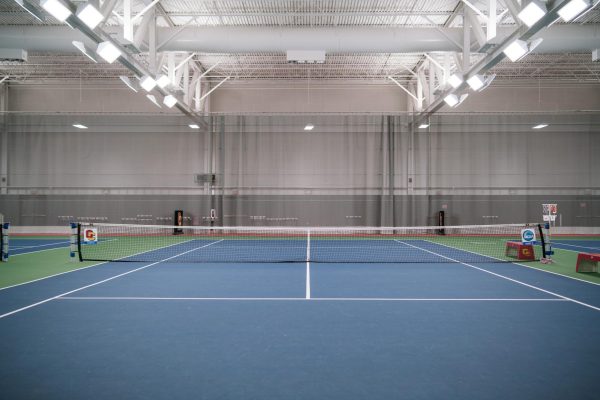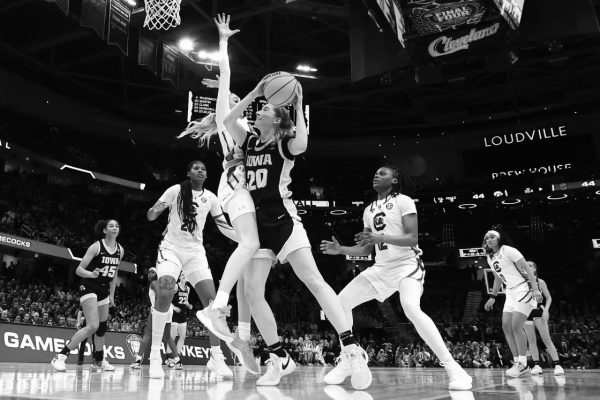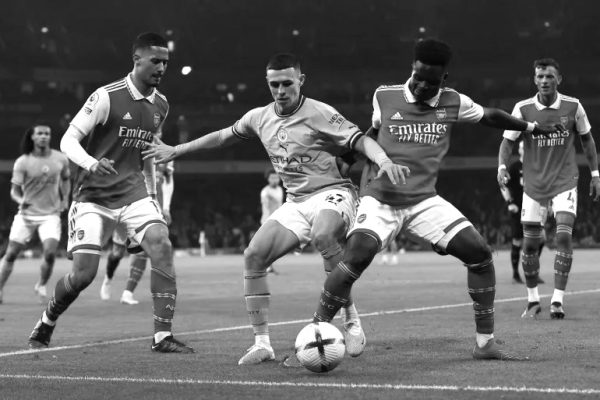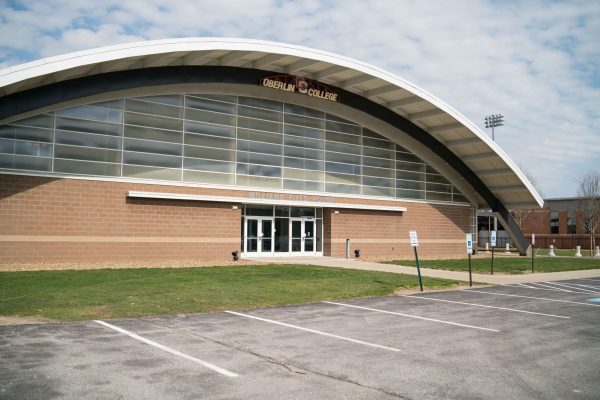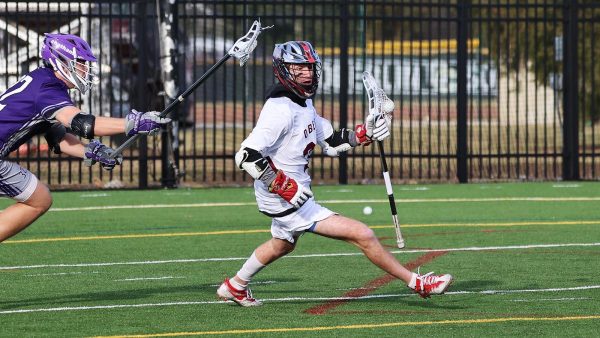Role Models and Their Importance to Black Athletes
Growing up, many aspiring young athletes look up to the stars of the NFL, NBA, MLB, and other leagues for guidance. They dream of reaching the same heights as their favorite players. Many college athletes hold steadfastly to their role models — or seek new ones to look up to and emulate, in order to better themselves.
And for a number of athletes, their first role model is not a professional but someone close to them. College third-year and women’s basketball player Jai Cunningham points to her father as her first role model, athletic or otherwise.
“[My dad] played Division 1 football at Northwestern University, and he was actually my first ever basketball and soccer coach,” she said. “Besides the fact that he’s my dad, throughout my entire life I’ve seen him do whatever it took to provide for my family and [me]. He’s the most resilient person I know and growing up I not only idolized him, but strived to make him proud.”
College third-year and track and field athlete Kofi Asare looked up to his older sister, Abena.
“She was always a better competitor than me, and I always was trying to elevate myself to be the most athletic Asare child,” he said. “She motivated me to be better than her.”
Role models don’t always come from immediate family. College first-year and men’s basketball player Darius Butler, like countless others, grew up wanting to be “Like Mike.”
“[NBA hall of famer] Michael Jordan without a doubt was the first athlete I idolized when I was a young kid,” he said. “My parents got me a Little Tikes basketball hoop when I was three and I was intrigued by the high-flying, fast-paced style of the game. [Jordan’s] competitiveness and flashy play style drew me to him. I would watch highlights of his dunks and best plays all the time.”
While her dad may have been her first role model, Cunningham has since found other athletes to respect and emulate.
“My current athletic role models are probably [NBA player] Derrick Rose and [WNBA players] Maya Moore and Tina Charles,” she said. “Rose is from my hometown, Chicago, but he’s also another person I think should get so much more respect in the athletic world. He is someone that just embodies that Chicago mentality of a grind, he’s a fighter and never backs down. He’s a Chi-town legend.”
As he’s gotten older, Butler’s focus has shifted from one of the NBA’s greatest players to another: LeBron James.
“LeBron is a very cerebral, versatile player who checks all the boxes as a basketball player,” Butler said. “As a person, he’s very invested in charity work for the community and is not afraid of speaking out about the inequalities and mistreatment faced by Black people in the US. Regardless of how many rings he wins, he’ll always be a champion in my eyes.”
While Cunningham and Butler idolize athletes in their respective sports, for others this isn’t always the case. College second-year and women’s lacrosse player Solace Porter counts tennis superstar Serena Williams as a role model, and Asare points towards NBA player Fred VanVleet as the athlete he currently looks up to the most.
So, if playing the same sport is not a necessary criteria for role models, what is?
“Race plays a huge role in [selecting] my role models,” Cunningham said. “It makes it that much easier to relate to them and their experiences. Seeing someone that looks like you having success in something you want to do is a great form of motivation and provides that reminder that it’s already been done before.”
For Porter, representation has also been important in identifying with role models.
“[One of my first athletic role models was] a girl named Kacia,” she said. “She was really good at lacrosse, had really good stick skills, and was overall an extremely competitive player. And she was one of the only other Black players in [my] league. So, I definitely was drawn to players that look like me. Representation matters.”
Asare also sees the value in having a Black role model as a Black athlete.
“Whether I like to admit it or not, race definitely plays a role,” Asare said. “As a Black athlete, it is inspiring to look at Black professional athletes compete because it shows me that people who look like me are able to be the best in their respective fields based on their hard work and skill set.”
Despite agreeing with the others, Butler makes a clear distinction between role models and favorites.
“[Is race a factor in picking] a role model? Yes,” he said. “But in selecting who my favorite basketball players are, no. Talent is talent.”
Whether personal relationship, talent, or race define a role model is personal, but they all play a part in athletes choosing who to emulate. For all athletes, identifying who they look up to is key to setting personal goals and staying motivated to improve as both players and people.
“I’ve always been a versatile player that can play effectively in multiple positions,” Butler said. “I try to be a student of the game. I thrive when I’m attacking the basket, but I’m also focused on getting my teammates involved. I take bits and pieces from LeBron’s play style and try to implement some of those facets into my own game.”
Asare points toward VanVleet’s resilience and growth as a player as integral lessons he learned from the Toronto Raptors guard.
“I’m drawn to Fred because he’s been counted out numerous times and still continues to just grind and prove people wrong,” he said. “He went from being counted out to counted on, and that, to me, is powerful. As an athlete growing up, I never truly felt like I was good enough or that people really saw my potential. However, I just continue to keep working and prove to myself that I’m capable of anything I set my mind to.”
Cunningham respects and admires the spirit of her athletic role models, and tries to incorporate that into her own life and play-style.
“That same grit, toughness, and resilience that my athletic role models have is something I try to carry with me every time I play,” she said. “Throughout my basketball career I’ve struggled with multiple knee injuries, and something that always keeps me going is just the desire to play and to reach my goals. I love basketball and without it I know I wouldn’t be here today. This game is something so much bigger to me and I truly couldn’t imagine my life without it.”


